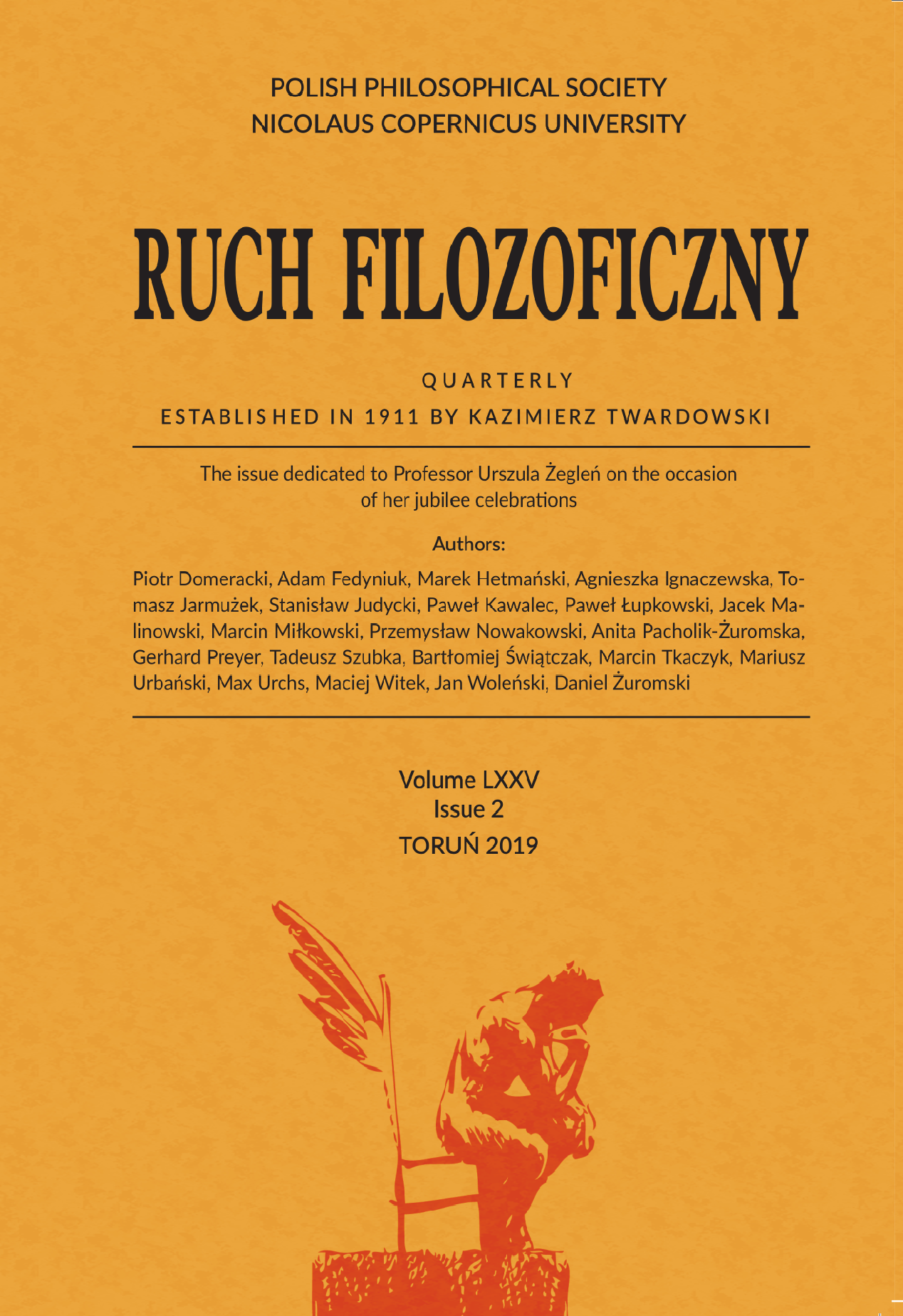Barbershop Paradox and Connexive Implication
DOI:
https://doi.org/10.12775/RF.2019.023Keywords
Lewis Carroll, barbershop paradox, connexive logics, connexive implication, relating semanticsAbstract
In this paper we remind Barbershop paradox noted by Lewis Carroll in 1894. We apply relating semantics to investigate this paradox in detail and to show its relation with connexive logic.
References
Carroll Lewis. 1894. “A logical paradox”. Mind 3, no. 11: 436–438.
Epstein Richard L. 1979. “Relatedness and implication”. Philosophical Studies 36: 137–173.
Jarmużek Tomasz and Kaczkowski Bartosz J. 2014. “On Some Logic with a Relation Imposed on Formulae: Tableau System F”. Bulletin of the Section of Logic 43(1/2): 53–72.
Jarmużek Tomasz and Malinowski Jacek. 2019. “Boolean Connexive Logics, Semantics and Tableau Approach”. Logic and Logical Philosophy 28(2): 1–22. DOI: http://dx.doi.org/10.12775/LLP.2019.003
Kneale William, Kneale Martha. 1962. The Development of Logic. London: Duckworth.
McCall Storrs. 2012. “A History of Connexivity”. In: Handbook of the History of Logic, ed. Dov M. Gabbay et al., Logic: A History of its Central Concepts, Vol. 11, 415–449. Amsterdam: Elsevier.
Walton Douglas N. 1979. “Philosophical basis of relatedness logic”. Philosophical Studies 36/2: 115–136.
Downloads
Published
How to Cite
Issue
Section
Stats
Number of views and downloads: 748
Number of citations: 3



